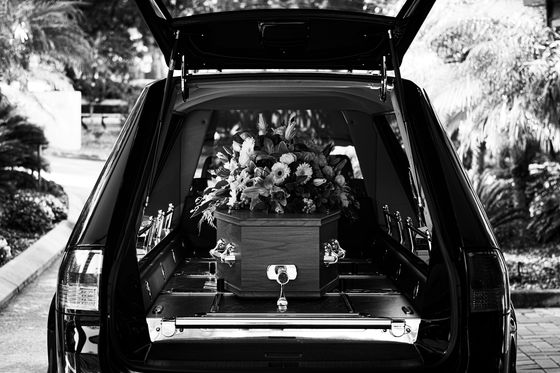'Organs are being removed from the bodies of prisoners without permission' - a horrifying situation that sounds like something out of a B-movie is rampant

In the US state of Alabama, there have been multiple reports of prisoners' organs disappearing after dying in prison.
Archibald: Alabama prisoners' organs vanish, and there's a whole lot of passing the buck. And the bodies. - al.com
https://www.al.com/news/2024/02/archibald-alabama-prisoners-organs-vanish-and-theres-a-whole-lot-of-passing-the-buck-and-the-bodies.html

On July 21, 2023, Kevin Moore died of a fentanyl overdose at Limestone Correctional Facility. Moore's mother was informed of his death by the correctional facility's chaplain 90 minutes after speaking with her son on the phone, and when she asked him about it, the chaplain asked her, 'Who cares about Mr. Moore?'
Moore died in custody, so the Alabama Department of Corrections conducted an autopsy and then returned him to his mother. When his mother was preparing for his funeral, the funeral director pointed out that most of Moore's internal organs had been removed, and she realized that her son's organs had been removed .
On November 16, 2023, Brandon Clay Dotson died at the Ventress Correctional Facility in Alabama. His family is suing the Alabama Department of Corrections in court because his heart had been removed from his body. According to Dotson's family, not only was his heart removed from the body, but it 'inexplicably took several days' for the authorities to return his body.
In addition, in November 2021, Charles Singleton, who was incarcerated at the Hamilton Prison for the Elderly and Disabled in Alabama, died and his body was returned to his family after an autopsy at the University of Alabama. However, it was discovered that several organs were missing from Singleton's body, especially his brain, which attracted attention.

Regarding why organs disappear from prisoners' bodies, Archibald points out, 'Apparently, in Alabama, the University of Alabama at Birmingham and the Alabama School of Forensic Science are conducting medical training using the bodies of incarcerated people.' 'The fact that prisoners' bodies are being dehumanized and exploited for labor, whims, and scientific advancement is a reflection of the way we treat prisoners as criminals, not human beings.'
In 2018, a group of medical students at the University of Alabama at Birmingham questioned the process of 'harvesting organs from the bodies of prisoners who died in custody without their consent' and asked their supervising doctor to explain 'the legal and ethical status of the organ procurement process and the educational use of the specimens.' A federal court has kept a legal record of this case, which states that the group of medical students was 'not very satisfied' with the doctor's explanation.
In this debate, the doctors' side explained that organ harvesting was 'part of the legally required autopsy on prisoners,' and that using prisoners' organs to educate future medical students was 'for the benefit of future patients.' It was also explained that if the organs could not be used, they would simply be discarded.
Doctors also tell medical students that in civilian autopsies that don't involve prisoner deaths, families may not allow organs to be used, but according to an ethicist at the University of Alabama at Birmingham, out of more than 3,000 autopsies performed at the school between 2011 and 2024, there were only four cases in which the family refused to allow the body to be used as a teaching sample.
The problem, Archibald noted, is that no such checks are ever given to the prisoners' families, and all they learn is that their loved ones are dead and that their bodies are missing parts.

The disappearance of organs from prisoner corpses has become a major issue in Alabama, but the University of Alabama at Birmingham has issued a statement to local media outlet AL.com, explaining, 'Autopsies are only performed with consent or permission from the appropriate state agency. The Alabama Department of Corrections is responsible for obtaining proper permission from the legal representatives of the deceased, which not only grants permission to perform an autopsy, but also specifically includes consent to the removal of organs and tissues for diagnostics and other testing, including final disposition.'
On the other hand, the Alabama Department of Corrections has denied any involvement of the department in the disappearance of organs from prisoner bodies, stating, 'The Alabama Department of Corrections does not authorize or perform autopsies. When an inmate dies, the body is simply transported to the Alabama Department of Forensic Sciences or the University of Alabama at Birmingham for an autopsy.'
While both the University of Alabama at Birmingham and the Alabama Department of Corrections have made statements that seem to shift the blame onto the other, a former medical student at the University of Alabama at Birmingham told Andscape that faculty physicians have explained to us that when prison warden fills out autopsy requests, they rarely check for confirmation that the organs will be used for teaching or research purposes.
As mentioned above, the Alabama Department of Corrections and the University of Alabama at Birmingham have issued statements blaming each other. Archibald said, 'Everyone is just shifting the blame,' and the problem is that there is no process for getting confirmation from the families of prisoners about how their organs will be used.
Related Posts:
in Note, Posted by logu_ii







